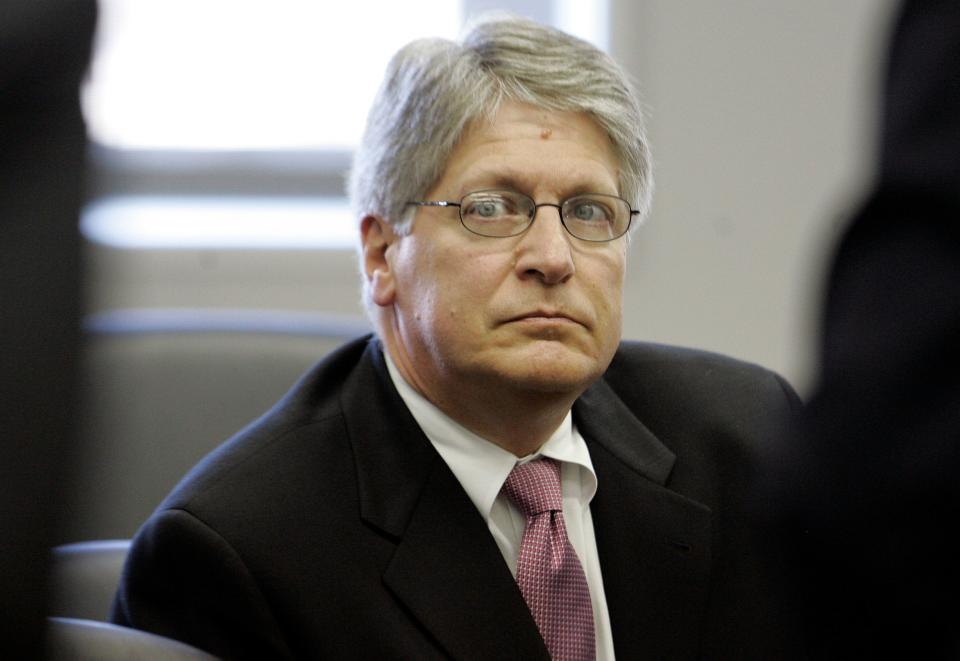Prosecutors wield way too much power. And their misconduct brings far too few consequences

If criminal justice reform is going to last, movements must turn their focus to prosecutorial power. The amount of influence state attorneys and district attorneys wield is devastating.
Prosecutors decide who remains free. They’re responsible for pleas, indictments and police oversight. Their power can be used to protect individuals. When abused, it ruins lives.
Former Durham County District Attorney Mike Nifong abused his power in North Carolina. In 2006, the prosecutor falsely charged three Duke lacrosse players with rape, withheld exculpatory DNA evidence and committed perjury. Innocent people suffered. Ultimately, Nifong was disbarred and spent just one day in jail.
Despite common misconceptions, trials aren’t actually where most cases are decided.
More than 97% of criminal cases result in plea deals. The use of pleas is understandable. Because of the sheer volume of daily cases, the criminal justice system would be backlogged and inefficient if it were exclusively trial-based.
But when due process is uprooted in the name of efficiency, bad things happen.

In plea bargains, the accused are too frequently coerced into pleading guilty, even when they aren't. A study released by the American Psychological Association found that the earlier a defendant submits to the prosecutor and accepts a plea, the more lenient his punishment will be.
And defendants often aren't privy to the evidence against them during the bargaining phase, making it difficult to make a good-faith decision. Prosecutors often take this as an opportunity to greatly exaggerate the dirt they’ve got on the defendant, pushing innocent people to plead guilty for crimes they didn’t commit.
According to the same study, a chilling 44% of defendants thought guilty pleas were inherently involuntary.
The solution to America’s over-incarceration problem isn’t just abolishing mandatory minimums or giving judges more discretion — moves made real by last year's passage of the FIRST STEP Act. What's more important is providing the defendant a fighting chance by eliminating a plea bargaining system that is inherently stacked against them.
The accused need a system of oversight during the bargaining phase — one that includes more than just the relevant attorneys (who may or may not be influenced by biases that taint whether a plea is given or how well the accused is defended).
What precedes the plea deal is just as troublesome.
Sol Wachtler, a former chief judge of New York state, once said that a grand jury would "indict a ham sandwich." Those hearings are completely closed to the public and most officers of the court, except prosecutors.
During grand jury hearings, prosecutors should present a balanced case, which would include some evidence that could exonerate the accused (and in some states is required to do so). However, on the federal level (and in a number of other states), prosecutors aren't compelled to present exonerating evidence by anything but principle.
The scariest part is the rate at which federal grand juries indict: 99.9% of the time. State grand juries are a mixed bag. Only around half of the states in the U.S. regularly use a grand jury to indict crimes. In other states, the use of a grand jury is optional.
The fact that the hearings are held in secret contributes to the lack of transparency and the inherent, systematic flaws in our criminal justice system.
The government protects itself from the consequences of unfair indictments through absolute immunity, which largely shields prosecutors from being sued for any wrongdoing. But those who make a living building cases for indictment should be just as indictable as the general public. Without accountability, there is less incentive for them to act with principle.
Drastically lowering the legal threshold for absolute immunity would certainly help.
We should be inspired and empowered by recent strides (such as the FIRST STEP Act) to transform our justice system from one of punishment to rehabilitation and care.
But we also must address the systemic failures that have allowed our culture of punishment to reach this point — resulting in broken homes, victimless crimes and a costly war on drugs.
If our second step focuses on prosecutorial conduct, justice may be reformed once and for all.
Christian Watson is a writer at Young Voices. He can be found on Twitter at @OfficialCWatson
This article originally appeared on USA TODAY: Prosecutors wield way too much power. And their misconduct brings far too few consequences

